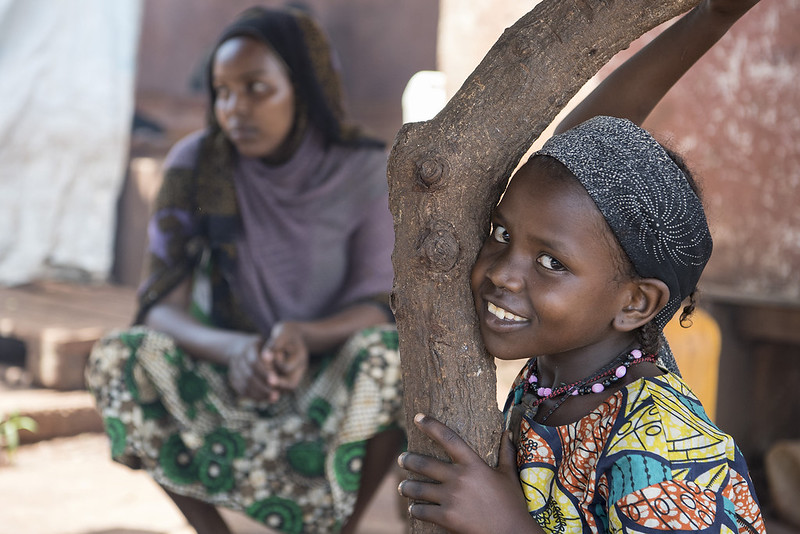 All governments from developing countries confront the challenge of designing coherent policies that can simultaneously accelerate growth, reduce poverty and inequality, preserve and improve the environment, and help adapt/mitigate to climate change. To successfully achieve these objectives, countries need both i) sound institutional arrangements for policy integration; and ii) quantitative analytical capacities to assess policy options. The ultimate aim is to foster a cohesive policy formulation process that incorporates development objectives across the economic, social, and environmental dimensions of sustainable development.
All governments from developing countries confront the challenge of designing coherent policies that can simultaneously accelerate growth, reduce poverty and inequality, preserve and improve the environment, and help adapt/mitigate to climate change. To successfully achieve these objectives, countries need both i) sound institutional arrangements for policy integration; and ii) quantitative analytical capacities to assess policy options. The ultimate aim is to foster a cohesive policy formulation process that incorporates development objectives across the economic, social, and environmental dimensions of sustainable development.
In response to the Government requests from Cameroon, Ethiopia and Senegal, this project aims to support policy coherence through stronger inter-agency collaboration and coordination, while building integrated assessment methodologies and capacities to address the inter-linkages and trade-offs among policies, goals and the economic, social and environmental dimensions of sustainable development. A climate, land-use, energy and water systems integrated assessment (CLEWS), including socio-economic aspects, will be developed in each country within the framework of improved cooperation among institutions and public administration and integrated whole-of-government approaches. Capacity building activities will be provided to government officials, in order to address the challenges and particular policy scenarios discussed with official government counterparts, to inform evidence-based policy discussions.
The Project will result in enhanced institutional capacity and inter-agency cooperation within target countries for developing integrated approaches and tools to support evidence-based policy-making to address the Sustainable Development Goals (SDGs).
Project code: 1819C
Primary division: UN DESA/DPIDG
Partners: EAPD, UNECA
Funding source: Development Account
Time frame: April 2018 - 31 December 2021
Focus countries: Cameroon, Ethiopia, Namibia
Thematic areas: Governance and Institution Building, Policy Coherence
Advisory Mission
1. Mission conducted to Ethiopia, 14-18 January 2019
During the first scoping mission in Addis Ababa, the leading ministry MoWIE and the other ministries involved understand the role of the institutional arrangements in order to structurally embed the modelling capacity into the policy cycle process of the Ethiopian government, including in the Global Transformation Plan III.
The IRA also identified the major institutions that should be targeted and helped to put in place the institutional arrangements for the implementation of the project which includes the analysts, their managers, policy makers and leadership/decision-makers. The IRA identified one of the potential institutions that could facilitate the inter-institutional collaboration and coordination upon completion of the project. Based on the lessons learned from other projects, the modelling capacity would have to be embedded into structures and institutional mechanisms to ensure that it will be used in policy planning on a structural basis.
2. Mission conducted to Ethiopia, 24-28 June 2019
- Assessed the potential institutional arrangements for project implementation based on the current capacity, the gaps and the needs.
- Identified and agreed key policy priorities with MoWIE as leading Ministry for the implementation of CLEWS; MoWIE reiterated its strong interest in the institutional arrangements to structurally embed the modelling approach into the policy cycle.
- Established collaboration with the UNCT and the RC system on the ground who emphasized the crucial role of the bottom-up approach of CLEWS project in the policy priorities of Ethiopia’s long- term national plan and assured that they would provide support where the CLEWS project would need it.
- Clarified UNDP RR role as co-chair of the Steering Commission. They are responsible to support the Ethiopia governments in preparing the policy plan process for the long-term Global Transformation Plan III. UNDP RR also shared the deadline by when CLEWS would have to deliver the integrated assessment to ensure incorporation into GTP III;
- Commitment to collaborate with UNCT/ RC/ RR UNDP/ FAO, IFAD, UNEP to ensure coherence in projects, avoid duplications and share information and research outputs (e.g. capacity gap assessment);
- Co-author of the detailed work plan for MoWIE;
- Strengthened collaboration with UN Statistics Office and agreed to combine capacity building efforts to multiply effects on the ground for the Central Statistics Office in Ethiopia and the main beneficiary of CLEWS, namely MoWIE.
3. Mission conducted to Ethiopia, 19-24 August 2019
- Assessment of needs and gaps on inter-operability and work plan of analysts who are the main participants in the training and one of the core target groups in CLEWS;
- Assessed institutional needs and challenges of the policy makers’ ministries.
4. Mission conducted to Ethiopia, 18-22 November 2019
Presentation and discussion of the roadmap on institutional arrangements for enabling implementation of the project, input into GTP III and incorporation into the policy cycle beyond the long-term national development plan GTP III.
 Bienvenidos a las Naciones Unidas
Bienvenidos a las Naciones Unidas